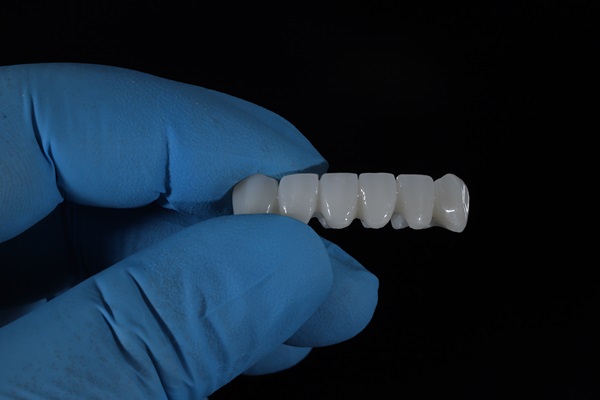Commonly Asked Questions About TMJ

TMJ refers to the temporomandibular joint, which is located near the jawline. When there is any sort of malfunction with the joint, the result is TMJ disorder. Sufferers of TMJ disorder tend to experience pain and difficulty performing things such as eating, smiling and speaking.
About TMJ
TMJ pain has treatment options, including wearing oral appliances, practicing self-care therapy at home and taking prescribed medications advised by a general dentist. Since some of the more common symptoms associated with a TMJ diagnosis include headaches, earaches, jaw pain and facial pain, it is necessary for those diagnosed to seek out their treatment options as quickly as possible.
What to know about TMJ disorder
The list below includes some of the most commonly asked questions about TMJ disorders.
What can cause one to be diagnosed with TMJ?
There are many different reasons that would cause someone to be diagnosed with a case of TMJ disorder. Some of the more popular causes include teeth grinding and clenching, undergoing a great deal of stress, experiencing some type of injury that affects the jaw, being diagnosed with arthritis or living with multiple crooked teeth. Once the cause is determined, treatment will be much easier.
Does TMJ disorder get worse without treatment?
It is likely that those who do not undergo treatment for their case of TMJ will experience more severe symptoms over time. This is because the longer someone is living with this disorder without treatment, the more it will have a tendency to progress. When long-time TMJ patients finally decide to undergo treatment because their symptoms are worsening, they will often need more intensive treatment and for a longer period of time.
General dentists recommend a treatment plan to be made as soon as symptoms appear as this ensures that the disorder is managed and hopefully remedied long-term.
Who is at a greater risk of being diagnosed?
Women who are between the ages of 18 and 44 are more likely to be diagnosed with a TMJ disorder. Additional factors that increase one’s chances of being diagnosed with TMJ include having poor neck posture, being diagnosed with previous jaw-related trauma, having a mouth full of crooked teeth and being diagnosed with a connective tissue disease. It is possible for some people to avoid a TMJ disorder diagnosis altogether by asking a general dentist for their professional advice on ways to prevent it from developing.
Does TMJ disorder last forever?
Many individuals that suffer from TMJ pain or dysfunction will experience life-long symptoms, however, with the help of a general dentist and a personalized treatment plan, symptoms may be reduced.
Get started with TMJ disorder treatment
When looking for more information on TMJ disorder and how it can be treated, it is best to undergo an evaluation with a general dentist. The evaluation can determine the appropriate course of action, which will likely include a number of remedies. Reach out today to find out more or to get started with an appointment.
Request an appointment here: https://irvineimplantdentistry.com or call Canyon Dentistry at (949) 753-6000 for an appointment in our Irvine office.
Check out what others are saying about our dental services on Yelp: TMJ Dentist in Irvine, CA.
Recent Posts
Your TMJ (temporomandibular joint) is responsible for connecting the lower jaw to the upper jaw and the skull. Pain in this area can cause tenderness in your jaw muscles, jaw clicking, earaches, and headaches. This can disrupt your daily activities. If you want to know how your dentist can help with your TMJ pain, here…
Looking for information on common dental visit issues? If you are currently experiencing one of more issues with your oral health, then finding out more about what is going on is a good idea. When there is something wrong with your teeth or gums, the sooner you find out why, the better. If you do…
A traditional dental bridge can replace up to three or four consecutive teeth on the same side of a dental arch. It is one of the most common dental replacements you can get. Knowing how to care for it can help maintain your new smile for a long time. Here are some tips for ensuring…
A family dentist is a professional who offers various general dentistry procedures to patients of all ages. Those who practice family dentistry can treat many serious dental concerns, including an abscessed tooth. In addition to being painful, an abscess can lead to further health concerns. Patients experiencing this issue should seek treatment right away.An abscess…


